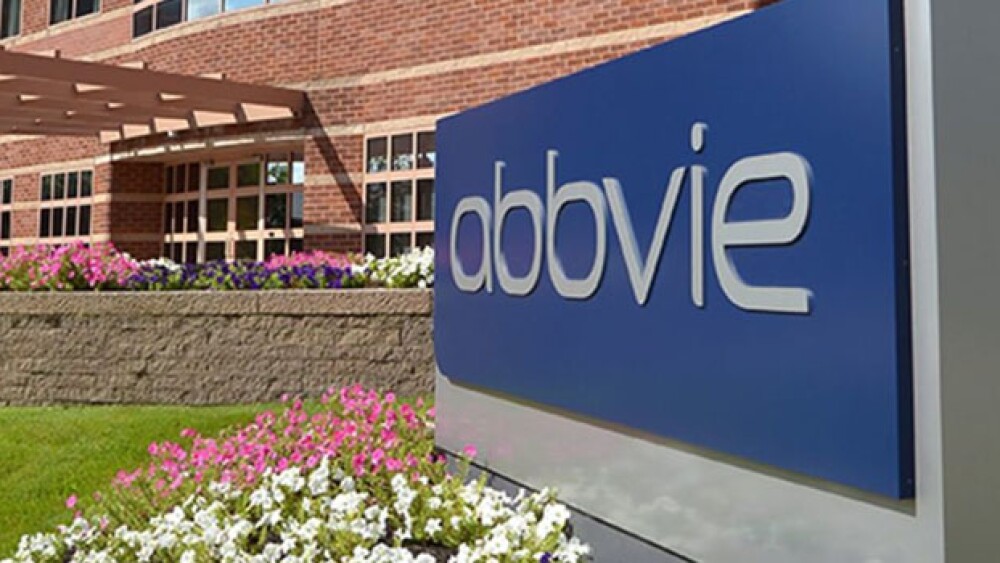WalletHub recently examined the quarterly filings of hedge funds to determine which stocks they’re buying the most.
WalletHub, a financial website, recently examined the quarterly filings of hedge funds to determine which stocks they’re buying the most. The idea is that billionaire investors might know something that mere mortal investors don’t—like how to become a billionaire. Keith Speights, writing for The Motley Fool, notes that one biotech company in particular, AbbVie, came up on the list, and looks at why hedge funds probably invest in the company.
Headquartered in Chicago, AbbVie’s best-known and best-selling drug is Humira for several autoimmune diseases such as rheumatoid arthritis, Crohn’s disease, plaque psoriasis and ulcerative colitis. Although there have been concerns about biosimilar competition, sales of the drug are still going amazingly strong—in the first quarter of 2017, it showed a 15.1 percent increase. Its 2016 sales were $16.1 billion, making up 63 percent of AbbVie’s revenues.
Most investors were concerned that biosimilar competition would eat away at Humira’s dominance when Amgen received approval in 2016 from the U.S. Food and Drug Administration (FDA) for Amjevita, its Humira biosimilar. Which is where things got interesting.
AbbVie hammered out a deal with Amgen that put off Amjevita sales in the U.S. until 2023. This resulted in AbbVie stock climbing 6 percent. The approval by the FDA revolved around “clinical equivalence” not about patents. Some of the key patents for Humira expired, but AbbVie had another 61 patents still in place for Humira. AbbVie planned to take Amgen to court over its intellectual property (IP) rights. Amgen, perhaps aware of the costs of the court battles ahead, didn’t start selling Amjevita. The two companies were scheduled for court in November 2019, but they worked out a deal where all litigation was dismissed, Amgen acknowledged AbbVie’s IP, and agreed not to market Amjevita in the U.S. until Jan. 31, 2023. It can, however, start selling it in Europe on Oct. 16, 2018.
And Amgen will pay AbbVie royalties on global sales of Amjevita. The deal doesn’t prevent other companies from developing and marketing Humira biosimilars, and Boehringer Ingelheim already received FDA approval for its own biosimilar, and Samsung Bioepis has received approval for its own, and Novartis submitted a regulatory application in Europe in June for its Humira biosimilar. Financial details of the Amgen deal weren’t disclosed, but for several years, at least, it seems to benefit AbbVie, at least in the U.S. market.
Speights notes, “With Humira in great position to keep rocking along for years to come, AbbVie can enjoy growth from its blockbuster cancer drug Imbruvica. The company also has a rich pipeline with several potential winners, especially experimental cancer drug Rova-T and autoimmune-disease candidate upadacitinib.”
In fact, Imbruvica raked in net revenues of $551 million in the first quarter, with a whopping growth of 44.7 percent.
At its first-quarter, Richard Gonzalez, AbbVie’s chairman and chief executive officer, said in a statement, “AbbVie delivered strong first quarter results, with double-digit EPS and operational revenue growth, exceeding our guidance for the quarter. As we look ahead to the remainder of the year, we expect continued strong commercial execution and significant pipeline progress. This includes a dozen pivotal trial read-outs and several regulatory submissions and approvals, further supporting our ability to drive top-
tier performance over the long term.”
Which is probably why hedge fund managers like it. Its current product portfolio is strong, especially Humira and Imbruvica. It has a strong pipeline with several potential blockbusters likely to hit the market in the next couple years. Speights writes, “The stock trades at a bargain valuation of 14 times expected earnings. On top of all that, AbbVie pays a nice dividend, which currently yields 2.82 percent.”





